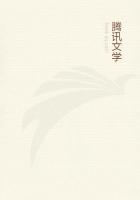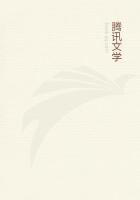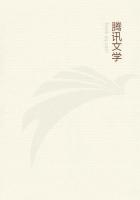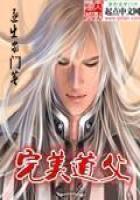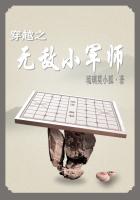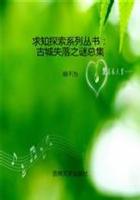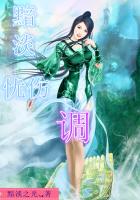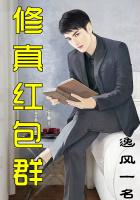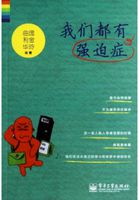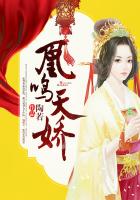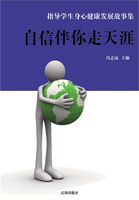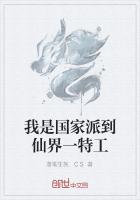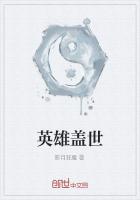WHAT THE PEOPLE OF THE MIDDLE AGES
THOUGHT OF THE WORLD IN WHICH THEY HAPPENED TO LIVE DATES are a very useful invention. We could not do without them but unless we are very careful, they will play tricks with us. They are apt to make history too precise. For example, when I talk of the point-of-view of mediaeval man, I do not mean that on the 31st of December of the year 476, suddenly all the people of Europe said, "Ah, now the Roman Empire has come to an end and we are living in the Middle Ages. How interesting!"
You could have found men at the Frankish court of Charlemagne who were Romans in their habits, in their manners, in their out-look upon life. On the other hand, when you grow up you will discover that some of the people in this world have never passed beyond the stage of the cave-man. All times and all ages overlap, and the ideas of succeeding generations play tag with each other. But it is possible to study the minds of a good many true representatives of the Middle Ages and then give you an idea of the average man's attitude toward life and the many difficult problems of living.
First of all, remember that the people of the Middle Ages never thought of themselves as free-born citizens, who could come and go at will and shape their fate according to their ability or energy or luck. On the contrary, they all considered themselves part of the general scheme of things, which included emperors and serfs, popes and heretics, heroes and swashbucklers, rich men, poor men, beggar men and thieves. They accepted this divine ordinance and asked no questions. In this, of course, they differed radically from modern people who accept nothing and who are forever trying to improve their own financial and political situation.
To the man and woman of the thirteenth century, the world hereafter--a Heaven of wonderful delights and a Hell of brimstone and suffering--meant something more than empty words or vague theological phrases. It was an actual fact and the mediaeval burghers and knights spent the greater part of their time preparing for it. We modern people regard a noble death after a well-spent life with the quiet calm of the ancient Greeks and Romans. After three score years of work and effort, we go to sleep with the feeling that all will be well.
But during the Middle Ages, the King of Terrors with his grinning skull and his rattling bones was man's steady companion. He woke his victims up with terrible tunes on his scratchy fiddle he sat down with them at dinner--he smiled at them from behind trees and shrubs when they took a girl out for a walk. If you had heard nothing but hair-raising yarns about cemeteries and coffins and fearful diseases when you were very young, instead of listening to the fairy stories of Anderson and Grimm, you, too, would have lived all your days in a dread of the final hour and the gruesome day of Judgment. That is exactly what happened to the children of the Middle Ages. They moved in a world of devils and spooks and only a few occasional angels. Sometimes, their fear of the future filled their souls with humility and piety, but often it influenced them the other way and made them cruel and sentimental. They would first of all murder all the women and children of a captured city and then they would devoutly march to a holy spot and with their hands gory with the blood of innocent victims, they would pray that a merciful heaven forgive them their sins. Yea, they would do more than pray, they would weep bitter tears and would confess themselves the most wicked of sinners. But the next day, they would once more butcher a camp of Saracen enemies without a spark of mercy in their hearts.
Of course, the Crusaders were Knights and obeyed a somewhat different code of manners from the common men. But in such respects the common man was just the same as his master.
He, too, resembled a shy horse, easily frightened by a shadow or a silly piece of paper, capable of excellent and faithful service but liable to run away and do terrible damage when his feverish imagination saw a ghost.
In judging these good people, however, it is wise to remember the terrible disadvantages under which they lived.
They were really barbarians who posed as civilised people.
Charlemagne and Otto the Great were called "Roman Emperors," but they had as little resemblance to a real Roman Emperor (say Augustus or Marcus Aurelius) as "King" Wumba Wumba of the upper Congo has to the highly educated rulers of Sweden or Denmark. They were savages who lived amidst glorious ruins but who did not share the benefits of the civilisation which their fathers and grandfathers had destroyed.
They knew nothing. They were ignorant of almost every fact which a boy of twelve knows to-day. They were obliged to go to one single book for all their information. That was the Bible. But those parts of the Bible which have influenced the history of the human race for the better are those chapters of the New Testament which teach us the great moral lessons of love, charity and forgiveness. As a handbook of astronomy, zoology, botany, geometry and all the other sciences, the venerable book is not entirely reliable. In the twelfth century, a second book was added to the mediaeval library, the great encyclopaedia of useful knowledge, compiled by Aristotle, the Greek philosopher of the fourth century before Christ. Why the Christian church should have been willing to accord such high honors to the teacher of Alexander the Great, whereas they condemned all other Greek philosophers on account of their heathenish doctrines, I really do not know. But next to the Bible, Aristotle was recognized as the only reliable teacher whose works could be safely placed into the hands of true Christians.

